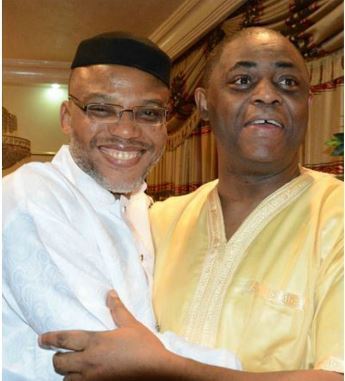Nigeria News
Biafra Remembrance Day: Fani-Kayode Gives Detailed Account of ‘Biafra War’

A former Nigerian Minister, Femi Fani-Kayode, has given his own side of the “Biafra war” story which led to the Indigenous People of Biafra (IPOB) and other pro-Biafra activists setting aside today, May 30 as Biafra Remembrance Day, to sit-at-home in honour of their fallen heroes.
Naija News had reported earlier that IPOB declared May 30 as sit-at-home day throughout the Southeast referred to as “Biafraland” by pro-Biafra activists and Nigeria in remembrance of its fallen heroes and heroines.
Before the sit-at-home today, Nnamdi Kanu addressed Biafrans where he reminded them that today is a “day of serious thinking and reasoning.”
The IPOB leader said: “Today is a day of serious thinking and reasoning on the part of our people and the day the entire Biafraland is locked down, markets are not opened, no schools, no offices are opened, no banks, nothing.
“Everywhere is at a complete standstill and total, shut down,” Kanu said in his 6 am broadcast which was monitored by Naija News.
While Biafrans in Nigeria in Nigeria will observe a “sit-at-home”, others around the world held rallies.
Like Kanu, Fani-Kayode took to the micro-blogging site, Twitter to give his account of the Biafra genocide.
The former Minister of Aviation wrote: “The massacre began at the airport near the 5th Battalion’s home city of Kano. A Lagos-bound jet just arrived from London and as the Kano passengers were escorted into the customs shed a wild-eyed soldier stormed in brandishing a rifle and demanding ‘Ina Nyamiri?’–Hausa for ‘where are the damned Ibos?
“There were Ibos among the customs officers, and they dropped their chalk and fled, only to be shot down in the main terminal by other soldiers. Screaming the blood curses of a Moslem holy war the Hausa troops turned the airport into a shambles bayonetting Ibo workers in the bar, gunning them down in the corridors and hauling Ibo passengers off the plane to be lined up and shot. From the airport the troops fanned out through downtown Kano, hunting down Ibos in bars, hotels and on the streets.
“One contingent drove their Landrovers to the railroad station where more than 100 Ibos were waiting for a train and cut them down with automatic weapon fire. The soldiers did not have to do all the killing. They were soon joined by thousands of Hausa civilians, who rampaged through the city armed with stones, cutlasses, matchets and home-made weapons of metal and broken glass. Crying ‘Heathen’ and ‘Allah’ the mobs and troops invaded the Sabon Gari(strangers’quarter)ransacking, looting and burning Ibo homes and stores and murdering their owners. All night long and into the morning the massacre went on.
“Then, tired but fulfilled, the Hausas drifted back to their homes and barracks to get some breakfast and sleep. Municipal garbage trucks were sent out to collect the dead and dump them into mass graves outside the city. The death toll will the morning the massacre went on. Then, tired but fulfilled, the Hausas drifted back to their homes and barracks to get some breakfast and sleep. Municipal garbage trucks were sent out to collect the dead and dump them into mass graves outside the city.
“The death toll will never be known, but it was at least thirty thousand. Somehow several thousand Ibos survived the orgy and all had the same thought: to get out of the North.” – Time Magazine London, 7 October 1966.
“We shall NEVER forget these terrible events and they must NEVER happen again. No matter how much we disagree, we must protect life and not take it. May the souls of all those that were murdered in the pogroms in the north in 1966 and in the civil war RIP.”












